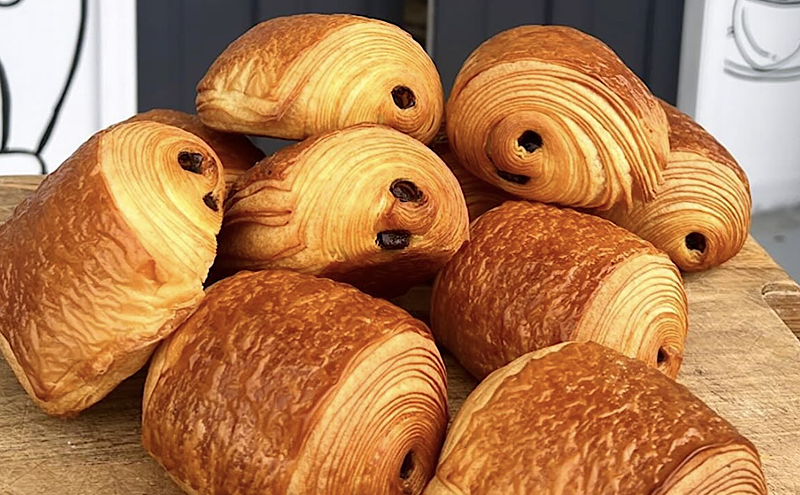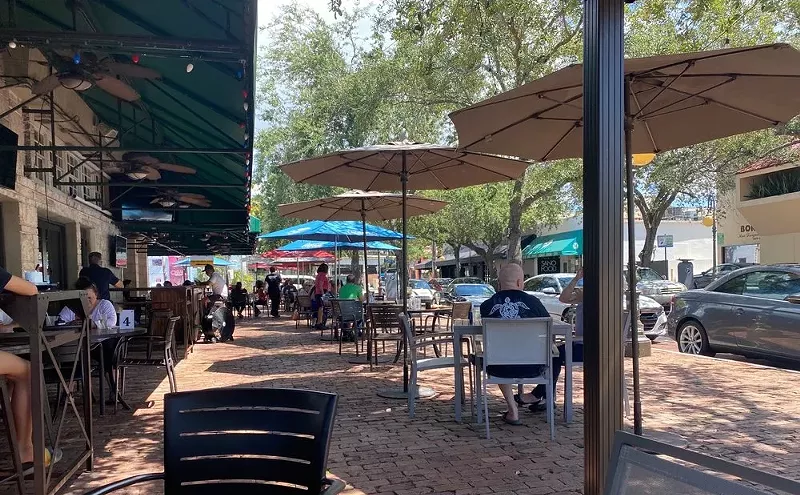To which she replies without a hint of emotion: "Sure, get by."
Austere Guan and blank Fengying have reached a dead end in a loveless, sexless marriage, staying together out of inertia and the confining nature of Chinese tradition -- and, of course, because of the kids. But then a little melodrama changes everything: Fengying and her eldest son, fourteen-year-old Guan Jian (Shu Zi'ong), out in a fierce, howling snowstorm, fall into a quicksandlike drift and are rescued at the last second from certain death by passing forestry bureau lumberjack Liu Dagui (Wu'ai Zi). The husband rewards the beaming savior with a sumptuous meal (sumptuous by Palookaville standards, anyway) in the family's home, lavishing him with eternal thanks; the three kids toast him repeatedly with giggling cries of "Uncle"; and the wife, for the most part, remains silent, taking it all in.
Cut to a scene in the town's freezing outdoor market, where Fengying and Jian attempt to unload the last of a batch of their bean curd. Along comes Liu in his horse-driven sleigh, jovially buying up the last of the tofu. He gives the pair a ride home, during which, it seems, romance begins to bloom. Time passes. Rumors of an extramarital affair circulate among the villagers, ultimately reaching the ears of "Old Guan," as he's called. At the same time, hidden from view, Jian catches his mother hustling the lumberjack out the back door right after Dad unexpectedly walks in the front door in the middle of the day. And then a seemingly robust Guan suddenly falls victim to what's diagnosed as cerebritis and dies. Fengying marries Liu. The kid smells a rat.
A small film that quietly touches on the grand themes of love, betrayal, murder, family, and justice, The Day the Sun Turned Cold (a beautiful, evocative title, emblematic of the story's tragic resonance) plays like a damped-down version of the ancient Greek legend of the House of Atreus, with commoners at center stage rather than noblemen, and a setting in bleak, forbidding rural China -- where winter never seems to ebb -- instead of green Mycenae. Hong Kong-based Yim Ho took his script from a real-life case in the People's Republic of China, unfolding the initial two-thirds of his tale in flashback as a now 24-year-old Jian (Tao Chung Wah), who works as a welder in a city car factory, reports a suspected murder -- "My mother poisoned my father with arsenic ten years ago" -- to the cops. He sits down and recounts the details to an interested if somewhat dubious veteran detective (Li Hu) over lunch.
"A big fan of films and novels, are you?" the detective asks Jian at first, casting doubt on the young man's veracity. But the deeper Jian gets into his story, recalling damning specifics such as witnessing his mother furtively pour a white substance into his father's soup (she tells the boy it's MSG) and then serve it mere minutes before Dad suffered a writhing demise, the more visibly concerned the cop becomes. He's hooked. And so are we. By the time Jian wraps up his recollections with his mother's remarriage -- and his own defiant refusal to live with the newlyweds -- the detective is sufficiently convinced to troop out to the boonies with Jian in order to have Old Guan's corpse disinterred for a decade-old autopsy.
Yim Ho portrays all this, past and present, in an unhysterical and nonjudgmental fashion, implicitly asking the viewer to play judge and jury. Is Feng-ying guilty, in effect the Clytemnestra of this caper, offing her Agamemnon with the aid of her Aegisthus? Or is she innocent, falsely accused by her eldest son, a modern-day Orestes embittered by his mom's seeming abandonment of him? As Jian remembers everything, based on the facts he recalls, his mother certainly seems to have poisoned her husband; but Jian's evidence is entirely circumstantial. And the genius of Yim Ho's script lies in the way he allows Jian to build a compelling case against his mother while simultaneously -- and subtly -- undermining his own credibility, giving Fengying some wiggle room vis-a-vis her guilt. Because in the process of unspooling the story of his father, mother, and "uncle," Jian unwittingly provides the audience with telling details of his own personality. He's a good kid, sure, but no paragon of filial virtue, skipping school regularly and lying to his parents about it. More important, it becomes abundantly apparent that he absolutely adored his mother, who spoiled him as much as was possible given the harsh privations of rural life. And when out of nowhere another man enters her life -- someone she genuinely loves, unlike her husband -- and replaces Jian as the main recipient of her affection/attention, the son turns cold. Can we trust this guy? Has he, in fact, watched too many films, read too many novels? Hmmmm.
When adult Jian finally confronts his mother toward the end of the film, she bluntly asks him what has prompted him to accuse her of such a heinous crime. "My conscience," he responds. "Oh," she says cynically, "you've got a conscience, have you?"
Because memory plays such an important role in The Day the Sun Turned Cold, Yim Ho and cinematographer Ho Yung have taken care to impart a distinctive look to the proceedings, particularly the scenes from the past, coating these images with a palpable bucolic patina: snowy landscapes, a rehearsal for a school parade, and an almost perpetual haze, which takes the form of smoke from the bean curd-making fires, driving snow, and, most vividly, condensation from everyone's breath. They even bathe the opening, present-day scenes in the police station and in the restaurant where Jian and the detective meet with white light (the former) and steam and cigarette smoke (the latter), then add jangling, industrial-sounding background noises to the mix to create an unsettling atmosphere, perfectly in keeping with the on-screen goings-on of a son fingering his mother for murder. (Suffusing the village action, both from the past and in the present, with a soundtrack of mawkish original string quartet music, however, results in syrupy overkill.)
Deliberately paced, well told, and superbly acted (Si Ching Gao Wa as Fengying is a standout), The Day the Sun Turned Cold, recalls not only the tragedy of Agamemnon, but it also echoes Hamlet and the detailed yet detached short stories of Guy de Maupassant. Utterly human, the film deftly probes familial ties, societal obligations, and the multifaceted concept of betrayal while leading viewers through an icy psychodrama with an unnerving double-clutch denouement. Artful, entertaining, and relentlessly watchable.
The Day the Sun Turned Cold.
Written and directed by Yim Ho; with Si Ching Gao Wa, Tao Chung Wah, Ma Jiung Wu, Wu'ai Zi, Shu Zi'ong, and Li Hu. In Mandarin with English subtitles.








